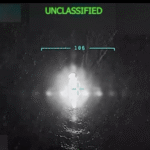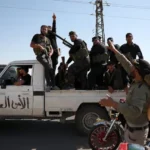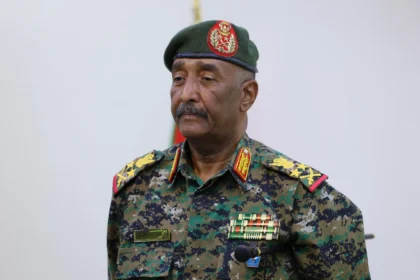The Guardline
People on board the boat off the coast of Venezuela that the U.S. military destroyed last Tuesday were said to have survived an initial strike, according to two American officials familiar with the matter. They were then killed shortly after in a follow-up attack.
The boat was under U.S. surveillance for a significant period of time. Those on board apparently spotted the U.S. aerial assets and altered the vessel’s course. U.S. officials said the boat appeared to have turned back toward shore, after which it was subjected to multiple strikes. Three sources, including Sen. Rand Paul, R-Ky., said the boat was attacked by one or more drones.
A very small number of Senate and House staffers separately received highly classified briefings about the attack on Tuesday. No senators or House members were in attendance, people familiar with the briefings told The Intercept.
Two officials familiar with the strike were left with the impression that more attacks in the Caribbean would be forthcoming in the weeks ahead.
Multiple sources say that Special Operations Command, or SOCOM, conducted the lethal operation. This is considered highly unusual given all the other military assets based in the region.
Col. Allie Weiskopf, SOCOM’s director of public affairs, would not comment on the command’s involvement in the attack. “We don’t have anything for you,” she told The Intercept.
In response to questions from The Intercept, chief Pentagon spokesperson Sean Parnell sent this statement: “Narco-terrorists who poison the American people will find no safe harbor in international waters or anywhere in our hemisphere. This strike sent a clear message: if you traffic drugs toward our shores, the United States military will use every tool at our disposal to stop you cold.”
President Donald Trump said he authorized the attack and posted an edited video to social media last week showing a four-engine speedboat cutting through the water with numerous people on board. An explosion then destroys the boat. Trump said the strike killed 11 people whom he characterized as “narcoterrorists.” The administration has offered no evidence to support these assertions.
Secretary of State Marco Rubio also made clear that the U.S. could have halted the ship and arrested the crew but chose to kill them instead. “Instead of interdicting it, on the president’s orders, we blew it up — and it’ll happen again,” he boasted.
Brian Finucane, a former State Department lawyer who is an expert in counterterrorism issues and the laws of war said that the new details, while horrific, did not change the underlying legal issues.
“The U.S. president is asserting the power to engage in the premeditated killing of people outside of armed conflict,” he told The Intercept. “There is no evidence that these people were lawful targets. The Trump administration hasn’t established that there was an armed conflict, hasn’t established that the law of armed conflict governed any such hostilities, and hasn’t established that the people aboard the vessel, the vessel itself, or its cargo were lawful targets under the law of war.”
Members of Congress from both parties have expressed alarm about the attack. Paul told The Intercept that while he didn’t oppose the use of drones in war, he objected to the U.S. summarily killing people without due process.
“During my time in the Senate, I have been the foremost critic of drones being used on civilians, especially Americans,” said Paul, a member of the Senate Committee on Foreign Relations. “The recent drone attack on a small speedboat over 2,000 miles from our shore without identification of the occupants or the content of the boat is in no way part of a declared war and defies our longstanding Coast Guard rules of engagement which include: warnings to halt, non-lethal force to capture, and ultimately lethal force in self-defense or in cases of resistance.”
Last week, a high-ranking Pentagon official who spoke to the Intercept on the condition of anonymity said that the strike in the Caribbean was a criminal attack on civilians and said that the Trump administration paved the way for it by firing the top legal authorities of the Army and the Air Force earlier this year.
“The U.S. is now directly targeting civilians. Drug traffickers may be criminals but they aren’t combatants,” the War Department official said. “When Trump fired the military’s top lawyers the rest saw the writing on the wall, and instead of being a critical firebreak they are now a rubber stamp complicit in this crime.”











